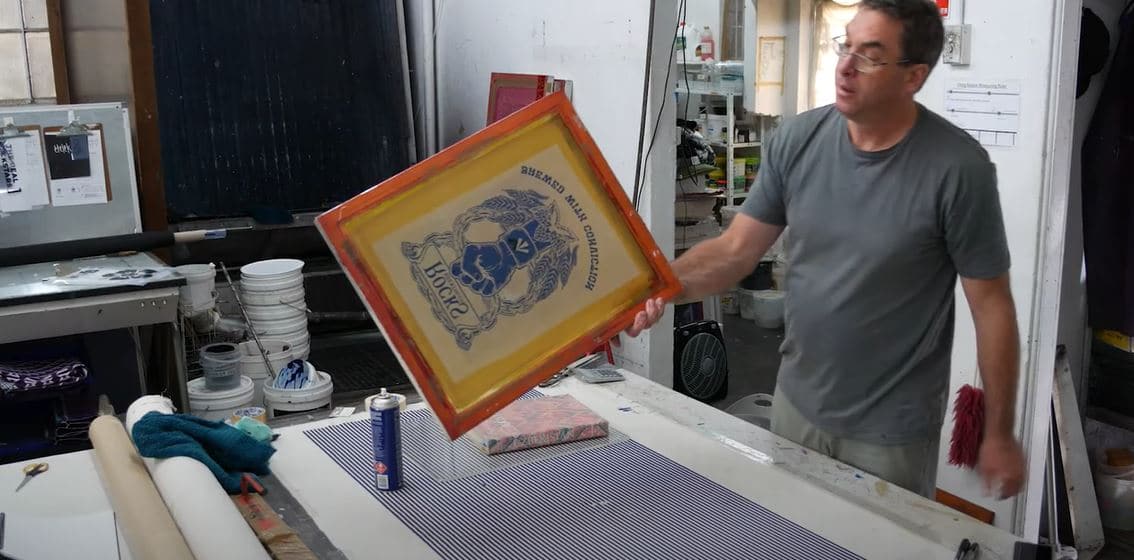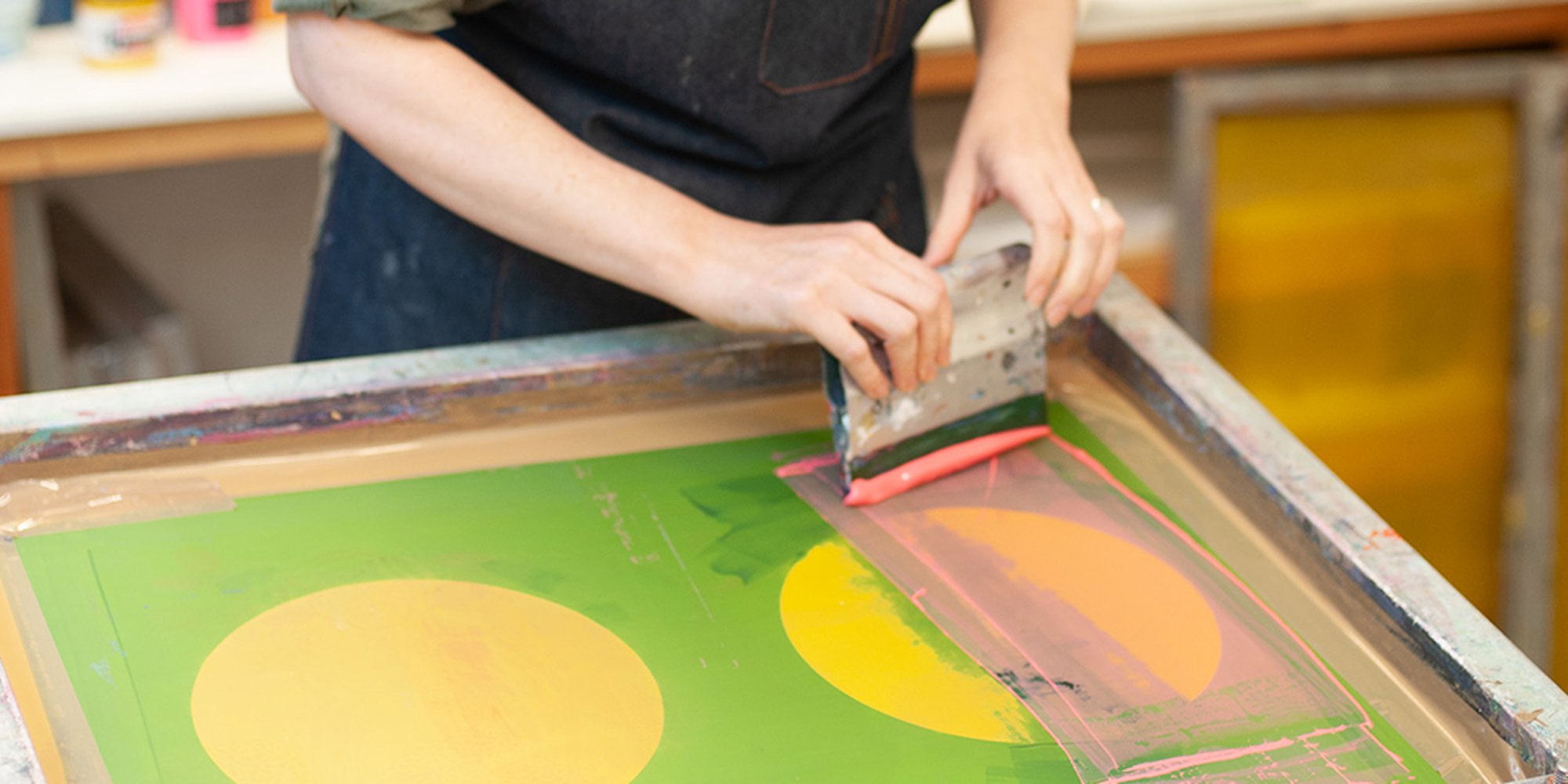ChatGPT said: Beginner’s guide to ordering with 10:9 Design Abilene
Wiki Article
The Essential Overview to Understanding Screen Printing and Its Versatile Makes use of
Screen printing has a rich background that goes back to ancient times, advancing into an innovative technique made use of across various sectors today. This overview explores the details of the screen printing procedure, detailing its applications in advertising and marketing, fashion, and home style - 10:9 Design contact. Understanding these principles can open up imaginative potential for both imaginative and business tasks. The adhering to sections will disclose important pointers and strategies to enhance one's screen printing undertakingsThe Background of Screen Printing
Screen printing has roots that map back centuries, its advancement shows the creative and technological advancements of various cultures. Coming from old China, the method was originally utilized for enhancing textiles and later spread to Japan, where it ended up being integral to Ukiyo-e woodblock printing. The method changed to Europe in the 18th century, where it got appeal amongst artisans and industrial printers. The development of picture solution in the 20th century changed screen printing, enabling even more detailed styles and higher efficiency. Artists like Andy Warhol even more drove its appeal, utilizing the tool to create famous works that blended commercialism and fine art. By the late 20th century, screen printing had developed itself as a functional technique, utilized in fashion, marketing, and art. Today, it remains to progress, integrating digital innovation and broadening its applications throughout numerous sectors.The Screen Printing Process Explained
Screen printing changes creative visions into concrete layouts via a collection of specific actions. At first, a picture is produced and afterwards moved onto a screen, generally constructed from great mesh material extended over a framework. A light-sensitive emulsion is put on the screen, which is subjected to light, solidifying in areas not covered by the picture. After rinsing the unhardened emulsion, a stencil is formed.Next off, the screen is put over the substratum, whether it be material, paper, or another material. Ink is after that pressed with the open locations of the pattern making use of a squeegee, transferring the design onto the substratum below. This process can be duplicated for several shades, needing separate displays for every shade. Ultimately, the printed item is treated utilizing warmth to assure the ink adheres properly, resulting in a long lasting, dynamic design on-line.
Kinds Of Screen Printing Techniques

Additionally, specialized techniques, such as discharge screen printing, eliminate dye from the material to produce softer prints, while aluminum foil screen printing applies metal foil to achieve a glossy finish (10:9 Design LLC Company). Each method provides unique attributes, dealing with different creative requirements and manufacturing scales, eventually broadening the possibilities within the screen printing domain
Applications of Screen Printing in Different Industries

Furthermore, the signage and marketing fields use screen printing for producing attractive screens and banners. This method enables strong shades and complex designs that catch focus. In electronic devices, screen printing is employed for using conductive inks to circuit boards, essential for part connections. The home décor market embraces screen printing to generate distinctive designs on textiles and wall art. On the whole, screen printing serves as a critical device throughout varied areas, improving products with individualized and aesthetically attractive graphics.
Tips for Effective Screen Printing Projects
While undertaking a screen printing task, cautious attention to information can substantially enhance the last end result. Picking premium materials is crucial; this consists of the screen, inks, and substrates. Making use of appropriate mesh counts can impact ink deposition and detail resolution. Prep work is equally essential; thorough cleansing of screens and appropriate direct exposure times assure crisp prints.Next, exact enrollment is critical for multi-color prints. Utilizing placement tools can aid accomplish precise layering. In addition, screening prints on scrap materials before production helps recognize potential problems without losing resources.

Often Asked Inquiries
What Products Are Finest for Screen Printing on Textile?
Cotton and polyester blends are suitable for screen printing on textile due to their resilience and ink absorption. Additionally, specialty fabrics like silk or canvas can create distinct textures and finishes, boosting the overall layout top quality.Exactly how Do I Tidy and Maintain Screen Printing Equipment?
To preserve and clean up screen printing tools, one must on a regular basis wash screens with proper solvents, evaluate mops for wear, oil moving components, and shop all products in a dry, dust-free atmosphere to prolong their lifespan.What Are the Environmental Influences of Screen Printing?
Screen printing can have substantial environmental influences, including chemical waste from inks and solvents, water usage during cleansing processes, and power consumption. Sustainable practices and environment-friendly products are vital for address reducing these negative results.Can Screen Printing Be Done in your home Properly?
Screen printing can be properly done at home with the ideal materials and methods. Hobbyists can develop high quality prints, though success depends on their ability degree, equipment, and understanding of the process entailed.
What Are the Costs Connected With Starting a Screen Printing Company?

Starting a screen printing organization involves prices for equipment, products, and work area. First expenses usually range from a few hundred to several thousand dollars, depending on the scale, quality of equipment, and desired production capability.
Screen printing has an abundant background that dates back to old times, developing into an innovative strategy used across different industries today. One more technique, rotary screen printing, utilizes round displays, facilitating continual printing on fabric rolls, thus enhancing performance for large productions. Furthermore, specialty techniques, such as discharge screen printing, get rid of color from the fabric to develop softer prints, while aluminum foil screen printing uses metal aluminum foil to accomplish a shiny coating. In the style sector, screen printing is extensively made use of to create vivid designs on garments, allowing brands to showcase their special styles. Cotton and polyester blends custom paper signs are optimal for screen printing on material due to their resilience and ink absorption.
Report this wiki page